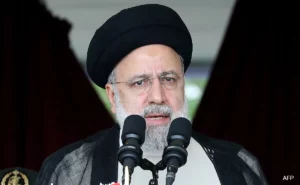Putin Warns NATO of Direct War if Ukraine Allowed to Use Long-Range Weapons

russia, ukraine, putin, nato, long-range weapons
Russian President Vladimir Putin has issued a stern warning to NATO nations, stating that if they allow Ukraine to use long-range Western weapons to strike inside Russia, it would effectively put NATO “at war” with Russia
. Putin’s remarks come as British Prime Minister Keir Starmer is set to meet with U.S. President Joe Biden in Washington to discuss potentially easing restrictions on Ukraine’s use of long-range weaponry
Escalating Tensions
Putin asserted that permitting Ukraine to deploy long-range missiles to attack within Russian territory would fundamentally alter the nature of the conflict
. He stated, “This would signify that NATO nations – including the United States and European states – are engaged in war with Russia. If that were to occur, then considering the shift in the nature of the conflict, we will take suitable actions in response to the threats we face.”The Russian leader claimed that the Ukrainian military lacks the capability to effectively utilize advanced, high-precision long-range systems provided by Western nations without assistance in targeting from those Western sources. However, Ukraine has been employing its available long-range weapons, such as the U.S.-supplied Army Tactical Missile System (ATACMS), to target critical Russian assets in occupied Crimea.
Potential Consequences
Putin warned that if Ukraine is allowed to use long-range weapons to strike inside Russia, “we will take appropriate decisions based on the threats that will be created for us.”
He did not specify what those actions might entail, but analysts have reported Russian forces moving some of their assets out of the missiles’ range.The Kremlin and Russian state media have consistently framed the conflict in Ukraine as a confrontation with the West and NATO. Putin’s latest threatening rhetoric appears to escalate this narrative at a pivotal moment. The nature of Moscow’s potential response remains uncertain, although in June, Putin hinted at the possibility of supplying arms to other nations to target Western interests.
Shifting Dynamics
Ukraine has long urged its allies to permit the use of weaponry that could extend their operational range into Russian territory. The U.S. and its allies have been hesitant to agree to this, concerned about a significant escalation. However, recent weeks have shown a potential shift in this dynamic.Secretary of State Antony Blinken visited Kyiv alongside his British counterpart, and Biden earlier this week suggested that the U.S. was “working out” the matter. Members of the bipartisan Congressional Ukraine Caucus recently signed a letter urging Biden to lift restrictions on Ukraine’s use of long-range weapons, arguing that such limitations are “inconsistent” with what the U.S. would accept for its own operations or those imposed on other allies, like Israel.As the conflict continues to evolve, the potential for further escalation remains high. Putin’s warning to NATO highlights the delicate balance between supporting Ukraine’s defense and avoiding direct confrontation with Russia. The outcome of the upcoming meeting between Starmer and Biden could have significant implications for the trajectory of the war and the relationship between Russia and the West.






